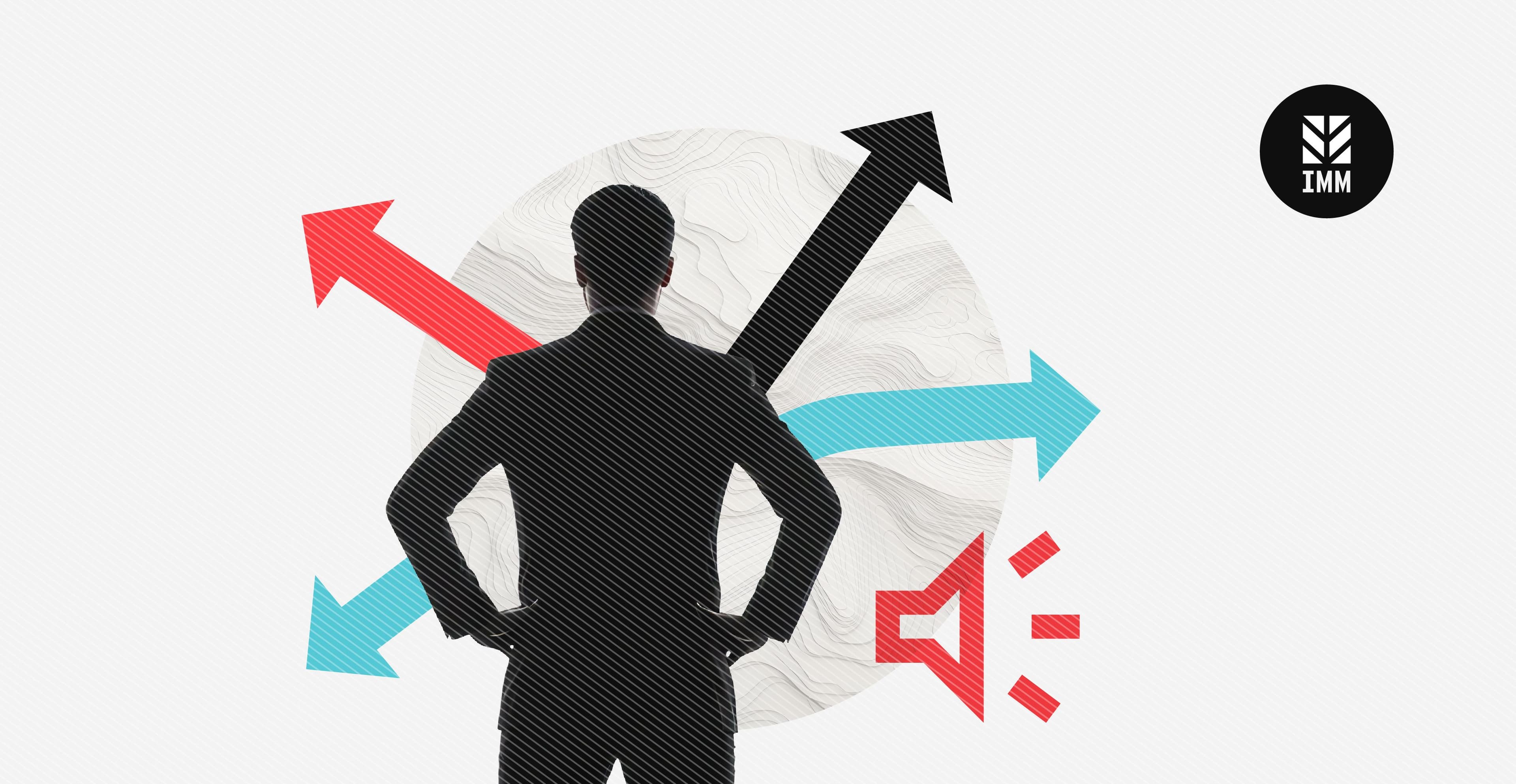
UPDATE: As of July 23rd, 2024, Google's plans for cookie deprecation have been cancelled. However, the need for digital marketers to evolve their advertising and SEO strategies to meet consumer demands for privacy is stronger than ever.
Crumbling Cookies Mean More Than We Think
We’ve been talking about the “fall of the cookie” for how many years now? IMM posted our first blog piece with tactical recommendations back in 2021. Google promised cookies would end in 2022. So, why have cookies been so slow to go away? It’s because cookie deprecation isn’t a short-term issue—it’s a reflection of larger trends in consumer behavior.
Discussions about the cookieless future usually center around marketing tactics. How can brands deliver personalized experiences and targeted messaging in a world where individual privacy is paramount? If the topic is fundamentally tactical, however, the conversation would be over. Every marketer worth their salt would know exactly what changes to implement when the end was nigh.
Of course, insulating brands against these industry headwinds is critical. IMM has been growing alongside the latest digital advertising strategies since 2006, so cookies have been on our plate for a while. We’ve been preparing our clients with best-practice deprecation solutions including leveraging first-party data, optimizing backend ad-server tracking, and using the full capabilities of walled gardens such as Google and META.
Yet, nowadays around the office, it’s become clear the cookie's demise isn't just a technical hurdle; it's a symptom of a much larger shift in how people use and perceive the internet. To thrive in this new era, we need to understand this shift and adapt our strategies for the long haul – not just the next year.
Web2.0: The (So-Called) Rise of User Agency
To understand the cookie's decline, let's look back at our industry’s history and the rise of Web2.0. Remember the days of static websites? Web2.0 blew that out of the water, ushering in an era of interactivity, user-generated content, and the birth of social media as we know it. It was a cultural revolution, not just a technological one.
When did this era begin? ChatGPT, and almost all websites, will claim that the term Web 2.0 was coined in 2004 by Harvard graduate Tim O’Rielly. However, we know that the term was, in fact, coined by user experience (UX) expert Darcy DiNucci in her influential 1999 article “Fragmented Future”, which eerily predicted the future of the internet and public relations.
Since Web 2.0’s eCommerce boom, cookies have been a fundamental part of the digital world, fueling growth and revenue at every user turn. And for a long time, they really were almost invisible, just as DiNucci predicted. But as users poured more of their lives into this digital space, their expectations changed. They craved more than just targeted ads; they sought genuine connections and a sense of control over their online identities.
The cookie, the unsung hero of Web2.0 e-commerce, suddenly found itself in the spotlight. What was once a behind-the-scenes tool became synonymous with invasive tracking and impersonal marketing.
In the fast-moving marketing world, staying ahead of the latest rules, tricks, and platform updates might feel Sisyphean. Cookies, then, are the ultimate false summit. Such a drawn-out conversation signals that there’s more to this effort than meets the eye. To find the best path to the top, why don’t we zoom out to find the broadest view we can?
Following the Crumbs Towards the Future
Hey, ChatGPT! What is Web 3.0? Use a temperature of .3 and use only 2 sentences.
“Web 3.0 is the next phase of the internet focused on decentralization and user control over data. It uses blockchain technology to create a more transparent, secure online environment where users can interact directly without relying on central authorities.”
Interesting. Clearly, this is just a theory—because let’s face it, “central authorities” like Google and META aren’t packing their bags anytime soon.
Whether or not the much-hyped "Web3.0" fully materializes, its core principles – decentralization, user control, and data ownership – are already echoing in the digital landscape.
As people spend more time online, their expectations are evolving. They crave personalized experiences but are increasingly wary of invasive tracking. This growing tension between personalization and privacy is a cause for reckoning among tech giants who have long profited from the indiscriminate collection of user data. Clinging to their cookies as long as possible, these companies are now scrambling to address this fundamental shift in user sentiment.
By encouraging brands to build trust by supporting user autonomy and choice (e.g. user-prompting) and demonstrating a clear value exchange, platforms like Google are following consumer trends. If they ever stop barking about the cookie and actually bite it, some digital advertising strategies will be impacted. Yet most effects won’t be caused by cookies themselves, but by how each individual brand aligns itself with the bigger picture.
Companies relying on hyper-targeted ads might scramble, while those with strong brand equity and awareness-based strategies might breathe a sigh of relief. The key is understanding where your business falls on the spectrum.
Two Paths: Conversion vs. Brand
Every business exists on a continuum between the two main digital marketing approaches: driving conversions through cost-efficient aggregate targeting or building brand equity through awareness. Every business blends these approaches, but knowing where you lean can guide your next steps.
-
Conversion-Driven: If your revenue machine hinges more on precise targeting and measurable online actions, you'll feel the cookie's absence most acutely. But don't despair! Sophisticated attribution methods and platform algorithms can still offer valuable insights. Focus on investing in a strong presence on walled-garden platforms where targeting capabilities remain robust. Use your resources to build your brand, then let the algorithms do what they do best.
-
Brand-Driven: If you've already invested in crafting a compelling brand story and fostering genuine connections with your audience, you're in a better position. Double down on your unique personality, create shareable experiences, and leverage the power of social media to deepen engagement. Keep pulling customers into your funnel with your digital presence, and while you're at it, consider adding unique experiences within different touchpoints that encourage UGC or provide top-notch data.
-
For B2C, this might look like game-ifying sales rewards processes or incentivizing social media shares.
-
B2B shouldn’t be as affected, but keep flying all your testimonials to boost brand credibility and long-term clout.
-
Navigating the New Digital World
The fall of the cookie is a catalyst for change, not a death knell. By understanding the evolving consumer landscape and adapting your strategies, you can turn this challenge into an opportunity.
Remember, today's consumers crave authenticity, personalization, and a sense of community. By prioritizing these values in your marketing efforts, you can forge lasting connections and build a brand that resonates in the ever-changing digital world.
While helping startups to Fortune 500, IMM has shifted its capability from a pure, performance-driven powerhouse to a boutique creative agency specializing in digital ad strategy. Why? Along this shift towards a utopian Web 3.0 exists a consumer preference for reflection and validation of identity, causing a need for creative branding alongside mass targeting.
We’re for businesses ready to capitalize on change. If now’s your time to step into the new digital marketing era and harness the power of brand building, we're here to help.


